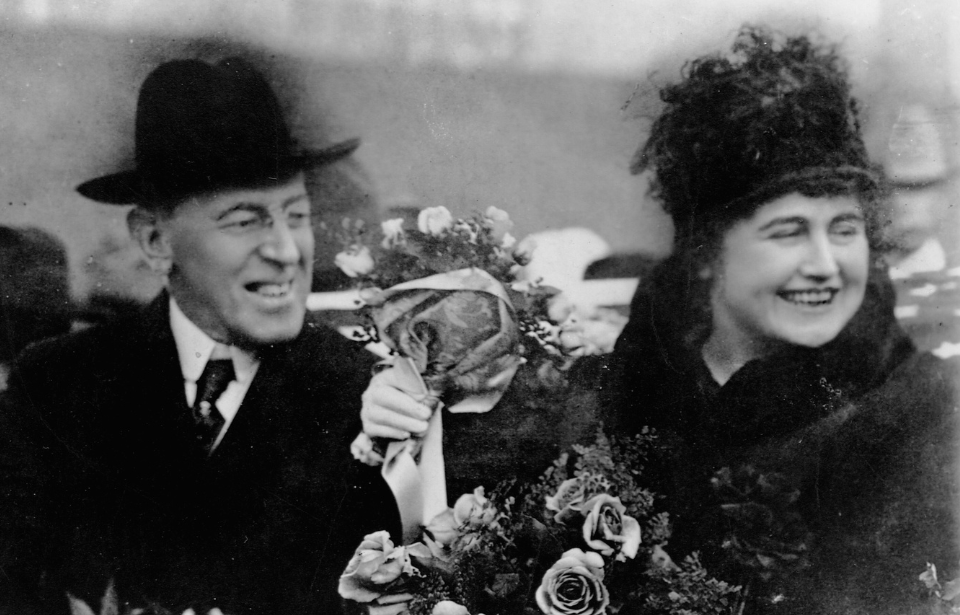In American history, few First Ladies have had the kind of influence and power that Edith Bolling Galt Wilson did during the presidency held by her husband, Woodrow Wilson. She was often referred to as the “Secret President,” as she stepped into a role that was unprecedented at the time. Following President Wilson’s severe stroke in 1919, she took over many of his responsibilities. Her path to this extraordinary position was marked by her deep involvement in her husband’s administration long before his health declined. She seamlessly transitioned into a role that required her to make critical decisions on behalf of the President, and her actions during this period forever changed the way women were viewed in the political sphere.
Edith Bolling Galt Wilson’s early life and education

Edith was born on October 15, 1872, in Wytheville, Virginia, to a family of 11 siblings. Her lineage was deeply rooted in American history, tracing back to Pocahontas and the First Families of Virginia. This gave her a profound sense of pride and a strong connection to her country’s past from an early age. Her father, William Holcombe Bolling, was a circuit court judge, earning her early exposure to the intricacies of law and justice and allowing her to develop a keen sense of fairness and a strong moral compass.
Education played an important role in Edith’s development. Despite the limited educational opportunities available to women in the post-Civil War South, she received her primary education at Martha Washington College and subsequently at the Powell School for Girls in Richmond, Virginia. Her education continued beyond the classroom through extensive reading and personal study, and this intellectual curiosity and commitment to self-improvement would later become defining traits of her character.
The love story of Edith and Woodrow Wilson
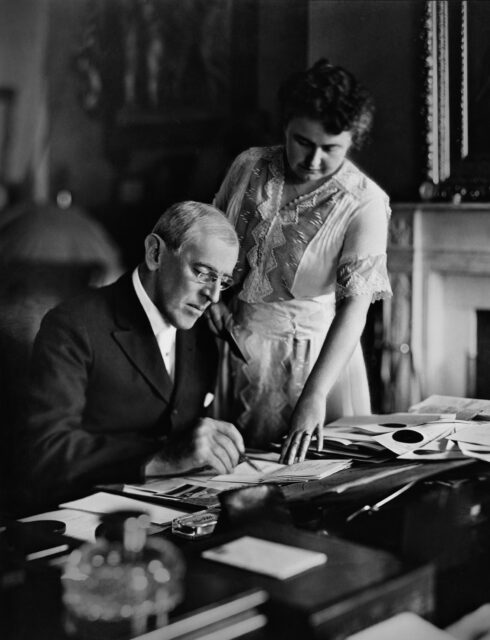
When Edith tied the knot with Woodrow Wilson in 1915, their union was not just a matter of two hearts coming together but also a pivotal moment that would significantly influence the direction of American politics. Edith, with her sharp intellect and strong will, quickly became an indispensable advisor to her husband. Their relationship extended well beyond the traditional marital roles of the time. Her involvement in the President’s affairs marked a new era where the First Lady‘s influence on national decisions was brought to the forefront.
Their marriage faced its most severe test when President Wilson suffered a stroke in 1919. Edith found herself in an unprecedented position, effectively managing the President’s duties while he recuperated. This period of quasi-presidential authority is often cited as a crucial yet controversial chapter in American history, demonstrating her unwavering commitment to both her husband and her country.
Edith’s role during the health crisis of President Wilson
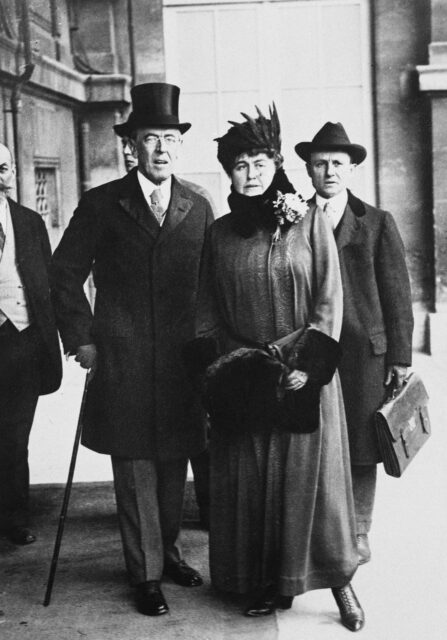
When the president suffered his stroke, the nation found itself navigating through uncharted waters. It was during this critical period that Edith stepped into the quasi-presidential role. While it is this period that many refer to when describing her as the “Secret President,” she herself preferred to describe her role as a “stewardship.” Ultimately, Edith made decisions that shaped the course of Wilson’s administration and, by extension, the nation.
As expected, her involvement was not without its controversies, but her commitment to her husband and her country was evident. During this time, Edith carefully screened all matters of state, deciding which were important enough to bring to the president’s attention, thereby effectively managing the executive branch’s day-to-day operations.
The national debate over her influence
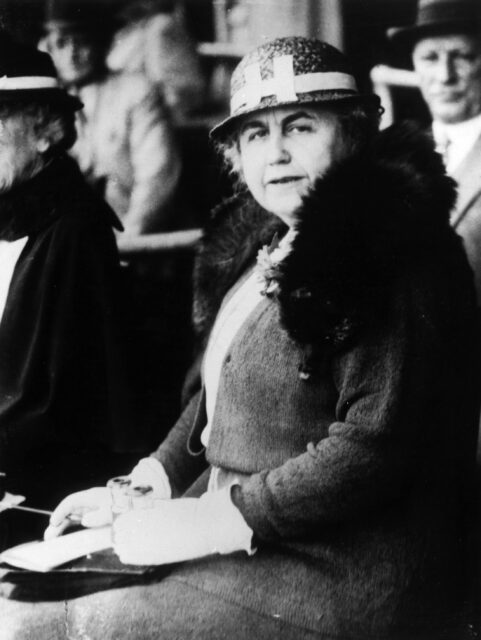
Even before her husband’s stroke, Edith had been a close advisor to her husband. As a result, she shared his vision for the League of Nations and worked tirelessly behind the scenes to support its creation. Her influence extended beyond that of just a wife; she was a true partner in his political life, offering insights, advice, and, when necessary, a firm nudge in the right direction.
Critics argue that her role during Wilson’s incapacitation was an overreach of power. They say that her unofficial position as a ‘steward’ effectively bypassed the constitutional provisions for presidential succession, which raised questions about the legitimacy of her influence. Her defenders, however, saw her actions as a necessary intervention during a critical period, arguing that her primary motive was the well-being of her husband as well as the nation. While some view her role as a pioneering moment for women in politics, others caution against romanticizing what they perceive as an unconstitutional overstep.
Her private life after the White House
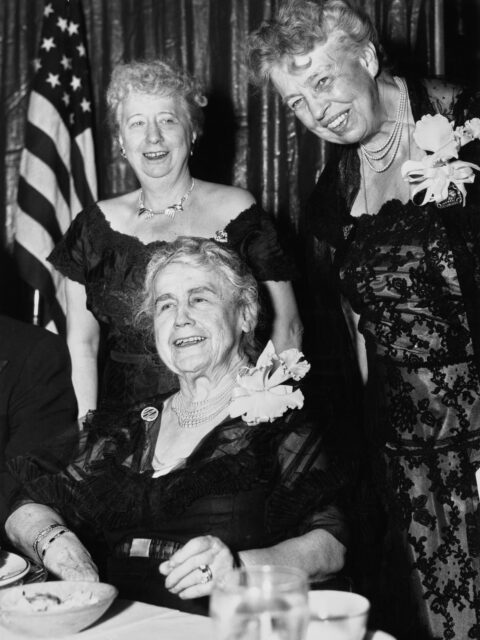
After leaving the White House, Edith’s life transitioned from the intense scrutiny of public service to a quieter existence. She remained in Washington, D.C., becoming an iconic figure in the city’s social circles. Her home became a salon where politicians, diplomats, and intellectuals gathered, not just to reminisce about the past administration but to discuss current events and the future of the nation.
She also took on the role of steward for her late husband’s memory, dedicating herself to preserving his contributions to American history following his death in 1924. She was instrumental in the creation and promotion of the Woodrow Wilson Presidential Library and often spoke at events that highlighted his achievements and their shared commitment to peace and progressivism. After years of this, Edith passed away at the age of 89 on December 18, 1961.
The enduring legacy of Edith Bolling Galt Wilson
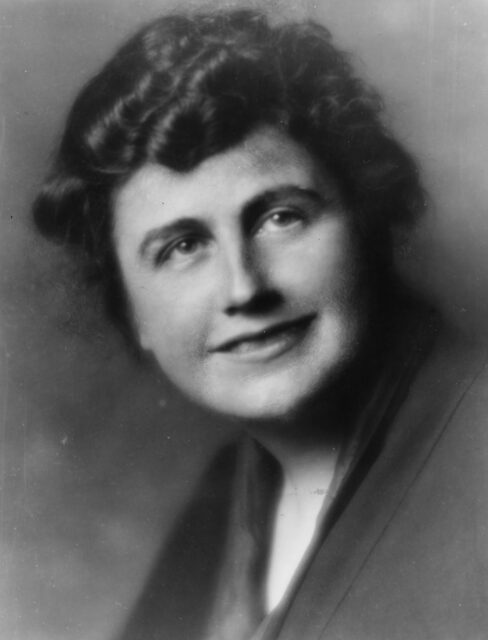
As the wife of President Woodrow Wilson, Edith played a role that was both traditional and, in many respects, groundbreaking. She was a woman who stepped into a space that few before her had dared to enter.
Read more: Decades of Ivy League Freshman, Including a Former President, Posed Nude ‘For Science’
She navigated the complexities of a world war, a national health crisis, and other significant political shifts, and her unwavering commitment to her husband, especially during his incapacitation, truly defined her legacy.
